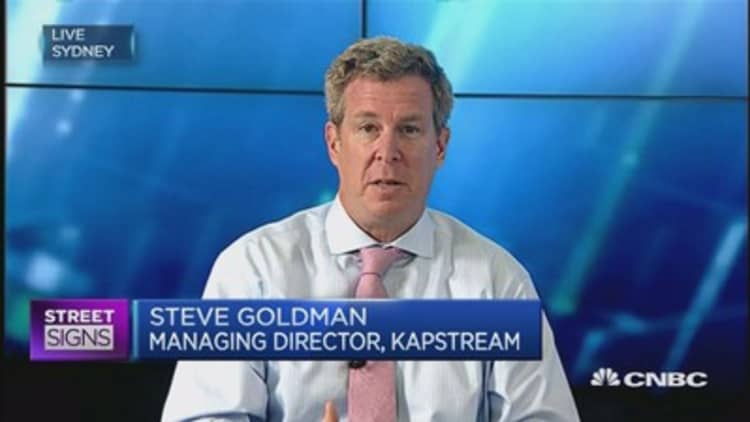The rout in bonds earlier this month may have subsided, but analysts said that investors had woken up to the fact that fixed income was no longer a one-way bet - with a return to record-low yields unlikely.
Hints from the European Central Bank (ECB) earlier this week that it would speed up its bond-buying in the next two months in anticipation of reduced liquidity, and a suggestion that the ECB was ready to do more to boost inflation, has encouraged traders to unwind bearish bond-market bets.
The yield on the benchmark 10-year German Bund – which moves in the opposite direction to the price -- was trading at 0.64 percent on Thursday. This is down almost from a 2015 high of 0.8 percent hit earlier this month, when investors reassessed the outlook for inflation and stronger economic growth in the euro area.
The 10-year Treasury yield has also pulled back from a high for the year set last week, and was trading at about 2.21 percent on Thursday.
Read MoreECB controversy over speech that sank the euro
"It's too early to call an end to the yield increase in bonds, but the stabilization we've seen in markets is encouraging," Christoph Rieger, head of rate and credit research at Commerzbank, told CNBC.
Analysts said that weaker economic data, expectations for the U.S. Federal Reserve to delay a rise in interest rates and jitters about a potential debt default in Greece were all reasons why yields could creep lower in the weeks ahead.

The euro zone economy lost momentum in May, data released on Thursday showed. Markit's composite flash Purchasing Managers' Index (PMI) - which takes into account both the manufacturing and services sectors - fell to 53.4 in May from 53.9 in April.
German investor sentiment, meanwhile, fell sharply in April as concerns about a crisis in Greece and a lack of growth outweighed the positive benefits of a weak euro, a survey from Germany's ZEW Center for European Economic Research showed on Tuesday.
Read MoreGreece should quit euro 'temporarily': Ifo's Sinn
"We're now seeing some weaker data, particularly from Germany. So we think the upside (in yields) is limited from a European perspective and then there's also the non-European angle, which is the Fed," Christian Schulz, a senior economist at Berenberg in London, told CNBC.
Big change
Still, while some analysts expect yields to tick lower, they do not expect them to fall as low as they did before the rout in debt markets.
Citi, for instance, no longer anticipates the German 10-year Bund yield to turn negative this year. It now forecast 10-year yields to end the third quarter at around 0.2 percent, up from a previous forecast of -0.05 percent.
And Goldman Sachs now see the 10-year Bund yield climbing to 0.9 percent by the end of the year, from a previous forecast of 0.5 percent.
Rieger at Commerzbank said he expected the Bund yield to decline to about 0.4 percent over the coming weeks. That would still put yields well above the 0.05 percent record low seen in April.
"What is clear is that yield lows are behind us if we move to levels that we are forecasting or below then there will be more willing sellers than we have seen in the past," Commerzbank's Rieger, who expects the Bund yield to decline to about 0.4 percent over the coming weeks, said. "That's the big difference since before the sell-off."
Berenberg's Schulz described the rebound in yields as "ultimately healthy."
"(It's) fundamentally justified but the upside is limited," he said. "We do think yields will go up but it's going to be gradual as growth prospects improve and that will take time."


